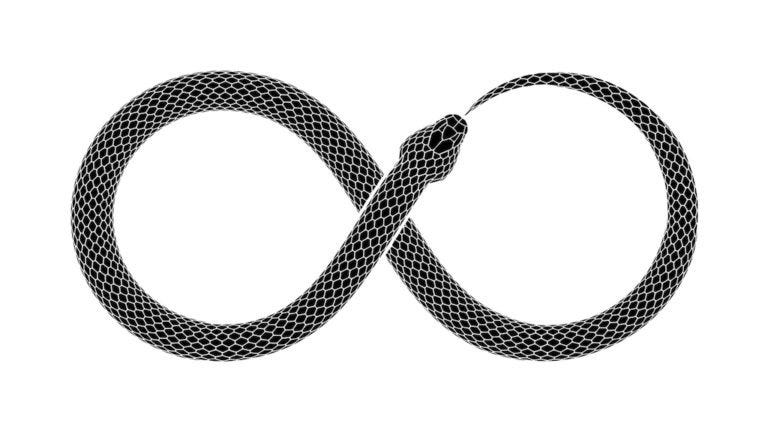No is everywhere. It is among the 100 most popular spoken English words. We say “no” all the time, but we also experience forms of no throughout our lives in death, rejection, regression, and loss. We associate much of the pain we experience in our lives with no because we think it steals our yes’s and their accompanying pleasures or joys. We often equate no with ending. We tend to think that no terminates, ceases from being, concludes, but this is a false and detrimental way to understand no.
Say a friend asks you if you want to hang out tonight and you simply respond “no.” If no ends, what is ending here? The night goes on. You both continue, just with new information. You now know your friend wants to chill and they now know you don’t. Perhaps what you end with your negation is your friend’s idea of hanging out. They planned to hang out with you and your no kills this idea. While arguably sensible at first glance, this possibility collapses once you try to identify what your friend’s idea of hanging out is an idea for. All ideas are ideas for because all ideas are products of intellects who think in pursuit of conscious and unconscious goals. If no ends an idea for something, what idea is it ending?
One possibility is that your no ends your friend’s idea for tonight. Their idea of hanging out is an idea for tonight because it is a plan for the evening. However, your negation does not end your friend’s idea for tonight because it leads them to consider new alternative plans for tonight. Your no does not end their plans, it changes them. Now that they know you don’t want to hang out, they modify their original idea for the night to accommodate this new information. Your negation conspires to create your friend’s night. It also impacts your plans for the night because whatever you end up doing you do with the knowledge that you turned your friend down. The truth is your no hasn’t ended, it has only transformed.
The no of self denial tangibly illustrates no’s transformative power. People practice ascetic techniques like fasting, dieting, restricting the duration of certain activities, etc. to transform themselves. They tell themselves “no” so that they can increasingly affirm a yes of some kind. When we diet, we transform into more of what we aspire to become through our self-denial. When we deny cake, we affirm fitness. Self-denial is a misnomer because every practice of self-denial is a practice of self-affirmation.
Every time one answer to a problem turns out to be ineffective, another answer or type of answer is implicated. When we become aware that our initial answer is wrong, the no initiates a freshly informed search for a yes. Every answer that we have understood as wrong gets us closer to an answer that we will understand as right. The wrong answers are useful, they are pieces of information that we leverage in our quests for better answers. Every wrong answer is a yes because every wrong answer progresses instead of ends.
When we ask someone not to do something, we implicitly suggest an alternative activity. No for some activity is really yes for the set of activities that does not include the contentious one. When people do not give their consent to X, they implicitly consent to Y. When I tell my dog not to eat my book, I implicitly tell her to engage in activities other than book eating. When I criticize a government because it does X, I implicitly affirm governments that don’t do X.
Take no to its ultimatum: Nothing. Nothing is the ultimate negation, but even nothing is always something. We know what it means to do nothing in a situation because doing nothing is an activity and we can’t ever not do. If, while looking in a closet, someone says “There’s nothing in here,” you know that means the closet is inhabited by a space of air and light, which is something. Yes is so essential to us that we cannot even conceive of true nothing. Since our brains are fundamentally wired to think ideas for, and true nothing can’t mean anything for any goals because it lacks content, we can’t conceive of it. The idea of nothing is literally impossible to conceive because to conceive is to think of something for.
If nothing can’t exist and no doesn’t end, life is a series of affirmations. Every time we think we negate, we actually affirm. Every no betrays an unarticulated yes. All apparent negations are actually transformations. Since every cause has an effect and every effect becomes a cause, there is no such thing as a naturalistic no. I’m not saying every ending is a beginning, I’m saying there are only ever beginnings.
If you intentionally conceptualize your “negations” as affirmations, your attention will shift from negative to positive. This isn’t worth doing just because it will help you emotionally, although it will do that, but also because it’s true. You do what you do because you affirm it. Every choice you make in life is an affirmation. “No” is simply a word we use to efficiently say “yes, but there’s something better.”





Great article, Marshall! Encouraging to think of ’no’ as a move toward a better ‘yes’!